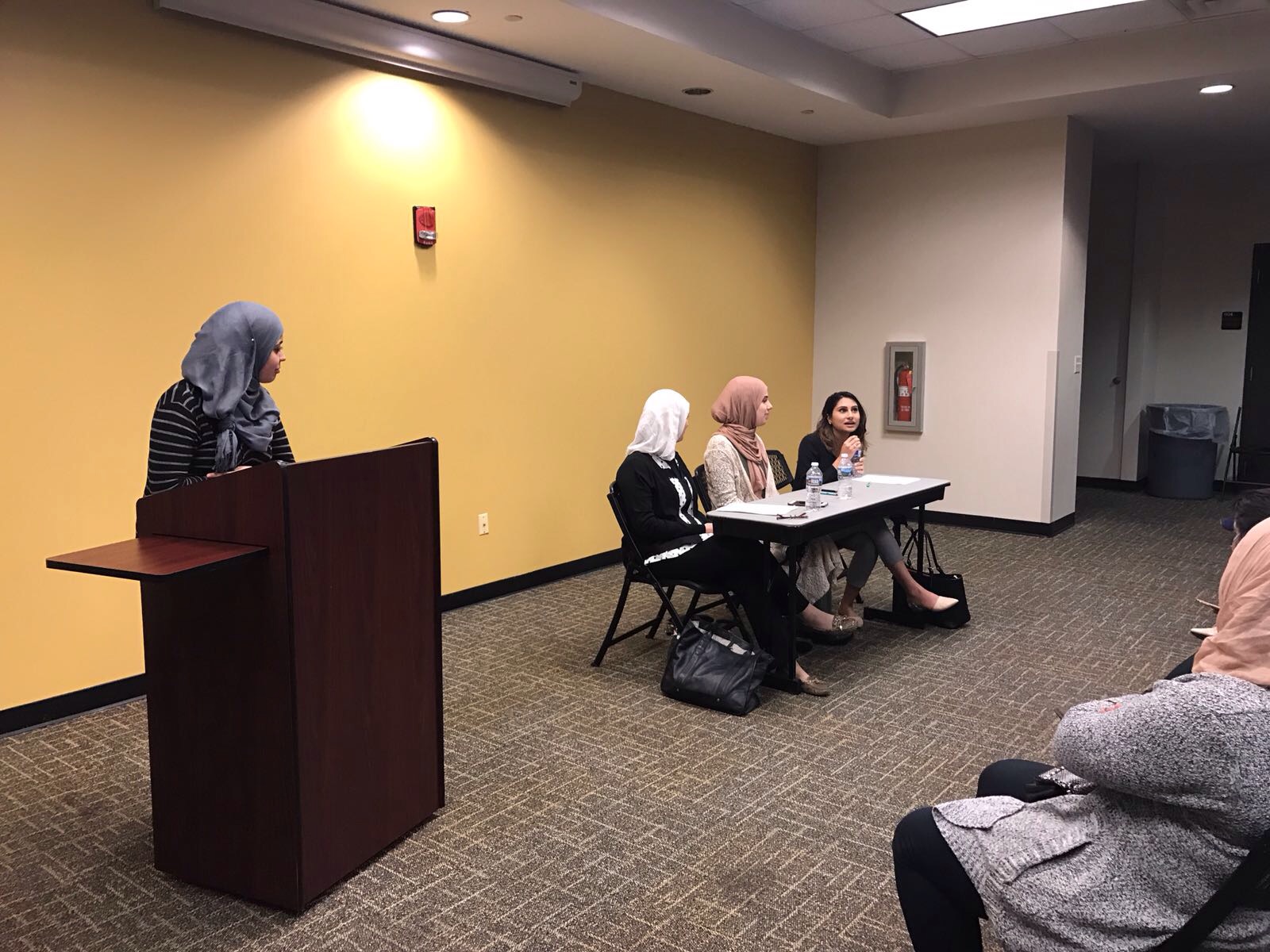
Panelists from left to right: Ream Shoreibah, Hala Sabatto and Shima Dowla. Photo courtesy of MSA
Kristina Balciunaite
Assistant Online Editor
A packed room participated in a panel discussion on “Feminism in Islam” on Monday, Feb. 20, in the Blazer RLC.
Muslim women from the Birmingham community gathered to address questions and clear misconceptions about what role feminism has in Islam. The event was hosted and organized by the UAB Muslim Student Association as a part of Islam Awareness Week, which runs through Feb. 24. The event was initially planned to be held in a conference room in Sterne Library, but MSA moved locations the day of the event due to “increased popularity.”
The panelists were Ream Shoreibah from CAIR-Alabama, which is a Muslim civil liberties and advocacy organization, and UAB graduate students Hala Sabatto and Shima Dowla. They discussed what it means to be a Muslim woman in general, in the United States and in the state of Alabama. Talking subjects included misconceptions around oppression of women in Muslim communities and around the concept of wearing hijab, the veil that many Muslim women wear to cover their hair.
In a country and state that is predominantly Christian, the panelists agreed on that practicing Islam, by wearing a hijab for example, brings a responsibility for them to represent their religion through all aspects of their lives to the rest of the society.
“I feel as though Muslim women are turning into political statements,” Dowla said. “They don’t really consider the person that’s behind the hijab, and this worries me because this takes away a part from who we are and how we contribute to society.”
Sabatto said that the hijab, in fact, empowers women, especially in Western society. According to her, the misrepresentation of the role of the hijab lets women speak out and prove that wearing it is an act of choice and thus show that Islam is a religion that promotes individual freedom and equality between the sexes.
Shoreibah encouraged the audience to be open and learn about not only Muslims, but any marginalized group, with a goal to acquire a more accurate understanding of who they are.
“It is important to reach out in a way where you want to get educated and you want to learn from that group,” Shoreibah said. “The first step should be to ask questions, get to know the people and learn from them.”
UAB student Clayton Cooper, sophomore in social work, said the discussion challenged his preconceived notions about the role women have in Islam.
“I come from a Christian background and I recognize I have been a part of the problem of schisms that have been a part of our nation,” Cooper said. “To take a step back, listen, recognize my own flaws of thinking made me want to appreciate and celebrate the diversity that we have, not only in the city, but on campus.”
In the next event of Islam Awareness Week, community leaders of different faiths will gather to discuss and find commonalities among the three major monotheistic world religions: Judaism, Christianity and Islam. The event will be held at 6:30 p.m. on Thursday, Feb. 23 in Room 230 of the Education Building.
Kristina Balciunaite can be reached at asst.online@insideuab.com and on Twitter @kscopekristina.
